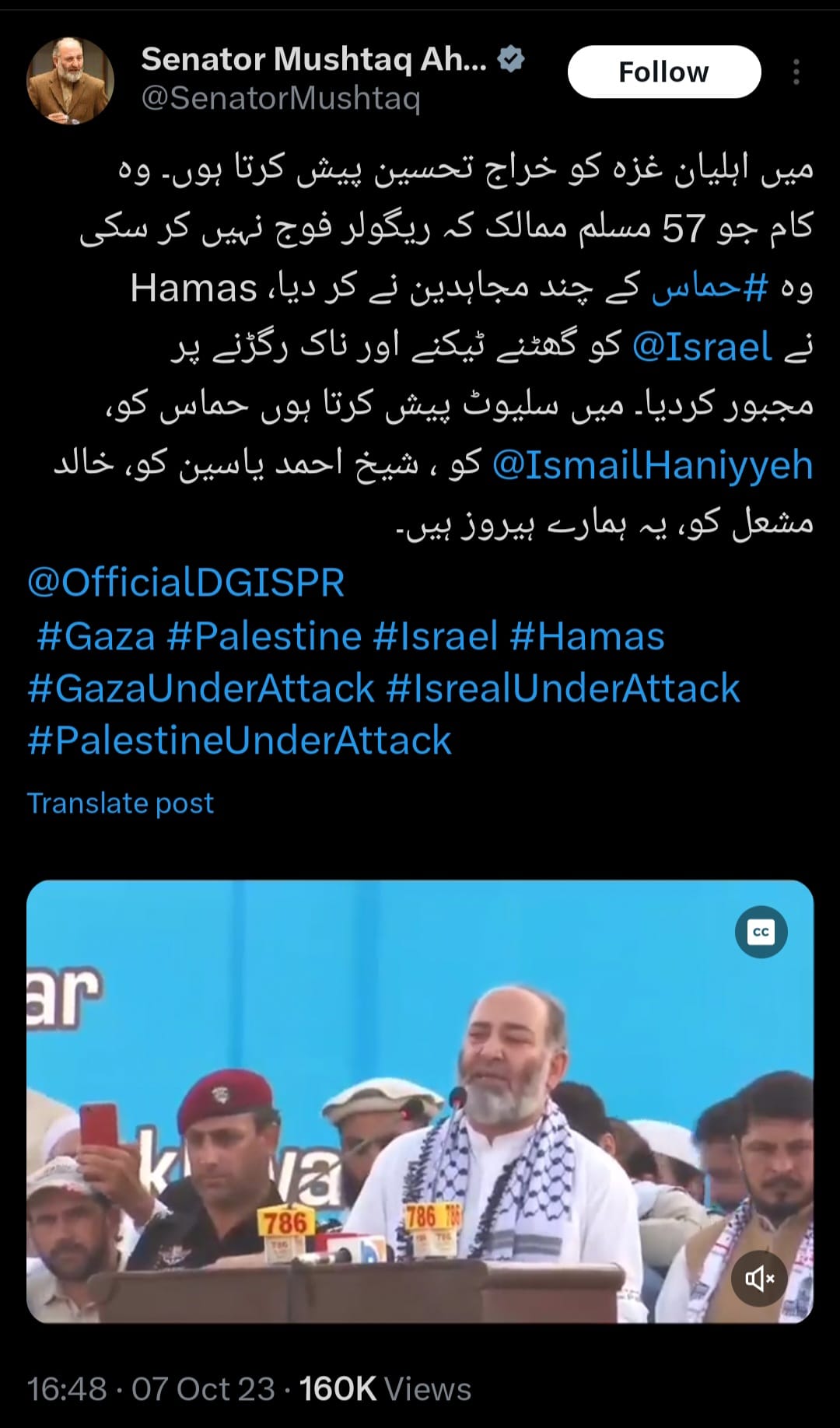In the digital age, social media platforms like Twitter and Facebook have transformed the way we communicate, share information, and express our opinions. While these platforms have opened up new avenues for global dialogue and understanding, they have also exposed a darker side – the proliferation of hate speech, discrimination, and prejudiced content. In Pakistan, like in many other parts of the Muslim world, these issues have found an alarming manifestation in the form of anti-Semitic posts and hate speech against Jews in the wake of recent conflict between Israel and Hamas.
In recent weeks, Pakistan has seen an increase in anti-Semitic posts on social media. These posts often contain offensive stereotypes, conspiracy theories, and derogatory remarks about Jewish individuals and communities. The anonymity and ease of sharing on these platforms have given a voice to those who espouse such views, contributing to the amplification of hateful content. Most such accounts openly affiliate themselves with Islamist political groups and include praises of Pakistani military in their bio, which hints at linkages these accounts may have to Pakistani state-backed troll armies run by the Pakistani military media wing – the ISPR, as exposed in a recent investigation.
The sources of anti-Semitic content on social media in Pakistan can also be traced to a complex web of historical, political, and ideological factors. The Israeli-Palestinian conflict, a long-standing and deeply emotive issue in the region, has often been a catalyst for the expression of anti-Semitic sentiments.
In the last few days, there have been also many posts from politicians, including former parliamentarians and current senators belonging to Jamat e Islami, Pakistan’s largest Islamist organization, which are openly celebrating the attack by Hamas and glorifying the terorrist organization.
Certainly, therefore, the influence of social media in Pakistan extends beyond the propagation of anti-Semitic content to include the glorification of organizations like Hamas, which is designated as a terrorist organization by multiple countries. Some segments of Pakistani social media platforms have been observed glorifying Hamas, portraying it as a symbol of resistance against injustices by the Israeli government.
Moreover, the proliferation of other Islamist political groups in mainstream politics of Pakistan adds another layer to this issue. Some of these groups have been known to propagate anti-Semitic propaganda as part of their ideological agenda, like the Jamiat-e-Ulema Islam.
This inclusion of anti-Semitic rhetoric within mainstream politics can normalize and legitimize such beliefs, making it even more challenging to address the problem effectively.
Additionally, anti-Semitic conspiracy theories, often rooted in misinformation and falsehoods, find fertile ground on social media. These theories tend to exploit existing grievances and fears, misleading users and fostering an environment conducive to the spread of hateful content.
Further exacerbating the problem is the use of social media as a tool for propaganda and radicalization by extremist groups within the country. These groups leverage the anonymity and reach of these platforms to radicalize individuals and promote hate-filled ideologies, including anti-Semitism.
In this complex landscape, addressing the proliferation of anti-Semitic content on social media in Pakistan requires a multi-faceted approach that considers historical, political, and ideological influences. It also necessitates efforts to counter the radicalization of individuals and to promote fact-based information, tolerance, and coexistence.
Due to the fear of persecution, the Jewish community in Pakistan left during the partition or went underground and today it is almost non-existent. But it puts the safety and security of Jewish individuals at risk in countries where Pakistani diaspora lives, especially if they continue to believe in such anti-Semitic ideologies from their country of origin.
Addressing this issue is a complex challenge. Balancing the right to free speech with the need to curb hate speech is a difficult task for social media platforms. Content moderation is often reactive, and despite their efforts, platforms sometimes struggle to effectively control the spread of hate speech. The most effective way is to bring a societal change.
Some other hate speech posts are displayed below:
By promoting education, encouraging reporting, and taking a proactive stance, we can work towards a more inclusive and tolerant online environment. It is our collective responsibility to ensure that social media remains a platform for dialogue, not division.
